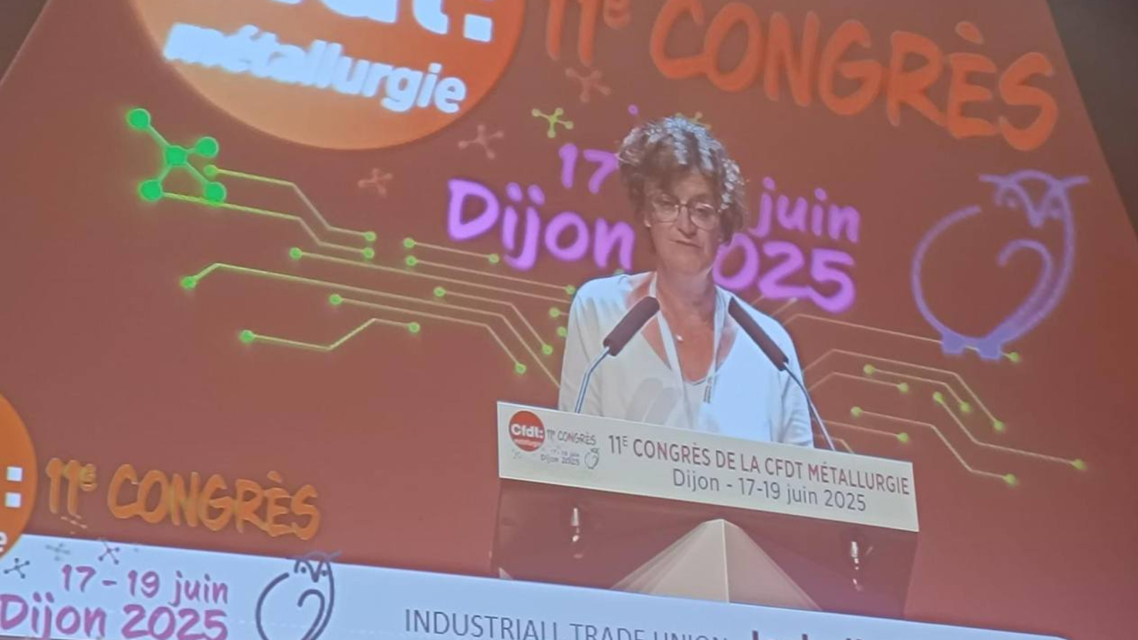Representing industriAll Europe, Deputy General Secretary Isabelle Barthès addressed the Congress with a strong message of support and unity.
“FGMM-CFDT is a consistent force for solidarity and progress within our shared fight for a fair, sustainable industrial future,” she said, thanking FGMM-CFDT’s active participation in European Works Councils, policy committees and social dialogue structures. “Together, we are fighting for a sustainable industrial future, quality jobs and democratic workplaces.”
The speech highlighted the urgent need for a new European industrial strategy to counteract the wave of factory closures, job losses and investment freezes that are threatening over 4 million industrial jobs. It called for a break from austerity and short-termism, and demanded social conditionality for public funding and procurement – to ensure that every euro invested in the green and digital transitions leads to secure, quality employment.
This message echoes the demands of 6,000 industrial workers who took to the streets of Brussels in February 2025, in a landmark mobilisation organised by industriAll Europe to call for ambitious industrial investment and worker participation.
The FGMM-CFDT Congress also comes at a time of heightened geopolitical and democratic challenges, with increasing threats to workers’ rights and civil liberties across Europe. The rise of the far right and the erosion of democratic space, in countries such as Hungary, are putting core trade union freedoms at risk.
“When the far right rises, trade unions are always the first targets. We must stand united against those who seek to divide, repress and dismantle our hard-won rights,” warned Isabelle Barthès.
In the face of these threats, FGMM-CFDT is renewing its commitment to:
- Act for the emergence of a European industrial policy
- Regain strategic independence
- Defend industrial employment and promote upskilling and reskilling
- Improve living conditions and health at work
- Promote social dialogue at branch and company level
- Strengthen trade union education and outreach, which is one of the best ways of combating the feeling of abandonment that feeds the populist vote.


